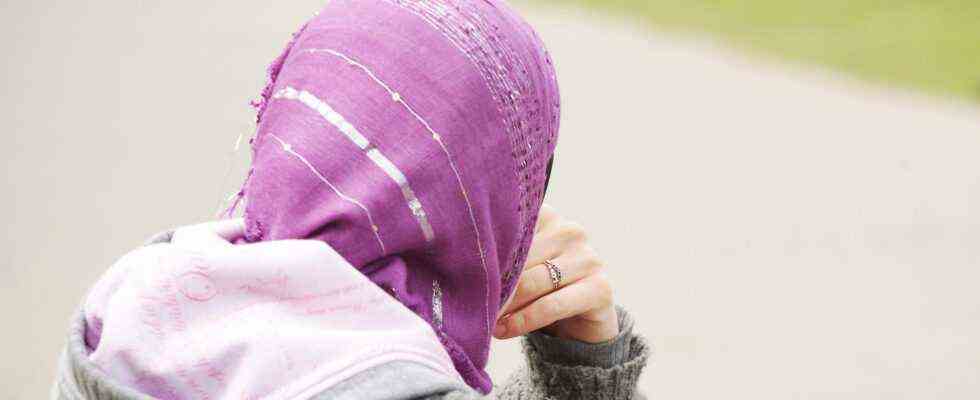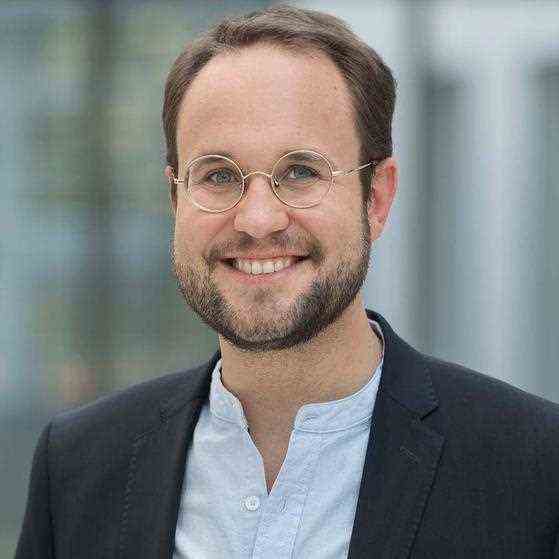analysis
Status: 07/15/2021 3:16 p.m.
Employers are only allowed to ban the Muslim headscarf in the workplace under strict conditions. The European Court of Justice decided in two cases from Germany.
By Christoph Kehlbach and Michael Nordhardt,
ARD legal editors
The choices:
According to two rulings by the European Court of Justice (ECJ), high hurdles apply when companies want to prohibit their employees from wearing headscarves. Internal rules, according to which employees are not allowed to wear any visible political, ideological or religious symbols at work, are basically conceivable under EU law. However, only if the employer can prove a “real need” – for example, because otherwise his entrepreneurial freedom would be impaired, according to the ECJ. Even then, such bans can only be considered if efforts to achieve neutrality in the company are implemented “consistently and systematically”.
In addition, all employees must be treated equally: Where employees are not allowed to wear a Muslim headscarf, Christian symbols – for example a cross on a chain – or the Jewish kippah must also be prohibited. It is irrelevant how conspicuous and large the sign is: either the prohibition applies “completely” or “not at all”.
The courts in the EU member states decide whether a headscarf ban is permissible in individual cases. These can also take into account national regulations on religious freedom and weigh them against the entrepreneurial freedom of the company, according to the ECJ ruling. So far, the ECJ has focused on business interests based on EU law. In Germany, however, the courts always included religious freedom. After today’s decision, this is no longer a contradiction in terms.
The proceedings:
Both cases before the ECJ for a decision take place in Germany. The first concerns the non-profit association WABE, which operates day-care centers. In 2016, a curative educator of the Muslim faith decided to wear the Islamic headscarf at work as well. In 2018, the association issued an instruction according to which employees in the workplace should not wear any visible signs of political, ideological or religious convictions. The employee refused and was warned twice. Your action is at the labor court in Hamburg. That in turn then appealed to the ECJ.
The second case concerns a woman who works as a cashier at the drugstore chain “Müller”. When she returned to work in 2014 after three years of parental leave, she wore a Muslim headscarf – unlike before. The branch manager told the woman that she would not be employed that way, that she would have to work without a headscarf. Because the company has always had a dress code that prohibits the wearing of headgear. The woman took legal action against this. While the proceedings were in progress, “Müller” also argued: A regulation was created in 2016 that required “without large-scale religious, political and ideological symbols” to appear at work. The cashier thinks this is illegal. The case went to the Federal Labor Court. This submitted it to the ECJ.
The legal starting position:
In both cases, it is about the area of tension between the personal religious freedom of employees and the entrepreneurial freedom of employers. So the question is exaggerated: How much do you have to restrict your own religious practice when you go to work? In Germany this question affects constitutional law: The Basic Law guarantees the undisturbed practice of religion. This also includes wearing religious symbols and headgear.
The basic rights only apply directly in the relationship between the citizen and the state, but even the employee does not have to “hand in his religion” when he goes to work. In the free economy, every employee is basically allowed to wear religious symbols, unless the employer effectively restricts this right. For this, however, he must have objective reasons, such as safety regulations at the workplace or a possible disturbance of the business peace. If there is a dispute between employers about this, it is the courts’ turn. They then have to weigh up in each specific case. EU law and the European Convention on Human Rights also protect religious freedom. At the same time, however, entrepreneurial freedom is also protected. Previous judgments from Luxembourg had strengthened the employers’ position.
Christoph Kehlbach, ARD Rechtsredaktion, on the judgment of the European Court of Justice on the headscarf ban
daily news 12:00 p.m., July 15, 2021
Previous decisions in Germany:
In Germany, too, there have already been decisions on comparable case constellations. The courts have always taken into account the freedom of religion of those affected. In 2015, the Federal Constitutional Court (BVerfG) ruled in favor of two teachers from North Rhine-Westphalia who wanted to wear a headscarf during class. That cannot be banned across the board by law, so Karlsruhe. A ban is only conceivable under high conditions – for example, if it specifically disrupts the school peace. Otherwise, however, the wearing of the headscarf is permitted, even if, as in this case, it is about civil servant teachers at a public school. In contrast to private companies, the state is obliged to be neutral in matters of religion.
The hurdles here to allow the headscarf for civil servants are higher than in labor law disputes between companies and their employees. In the case of the two teachers, Karlsruhe allowed the headscarf to be worn. In another decision it looked different: A trainee lawyer from Hessen who wanted to wear the headscarf during her training to become a fully qualified lawyer was not allowed to do so. At least not if she could be perceived as a representative of the state or the judiciary as part of her legal clerkship. Legal trainees, for example, lead court proceedings or represent the public prosecutor in criminal proceedings.
The legislature in Hesse had determined that they must behave neutrally in terms of ideology and religion. The Federal Constitutional Court decided that this was constitutionally unobjectionable. The encroachment on the freedom of belief is justified. The fact that trainee lawyers are to be treated differently than teachers is also due to the fact that the headscarf ban is limited to individual activities. In addition to meeting and leading negotiations, the trainee lawyer could also pursue her legal training with a headscarf.
The meaning of the ECJ ruling:
With today’s rulings, the highest EU court is moving towards the jurisprudence in Germany. The EU judges are now also saying that religious freedom can play a role in these issues. The national courts therefore have a certain amount of leeway in these matters and do not have to worry that their judgments violate EU law if they include religious freedom. The final judgments in the two specific cases are now spoken by the respective competent courts in Germany. Today’s decision from Luxembourg has not reduced the chances of employees.
ECJ ruled on headscarf ban
Bernd Wolf, SWR, July 15, 2021 1:14 p.m.


